Financially self-sustaining and inclusive social entrepreneurial approach provides access to safe water in Kenya
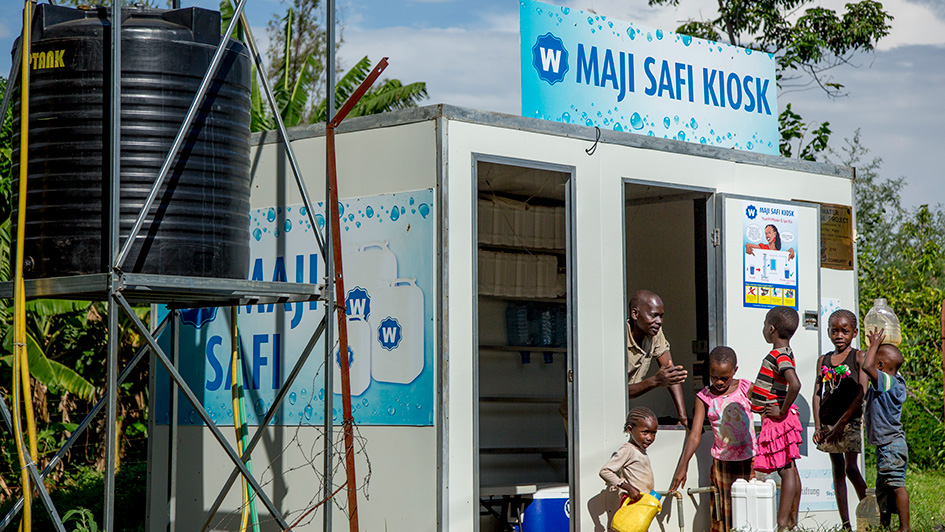
The SWE kiosks serve water to over 33,000 people across seven Kenyan counties at affordable prices.
© Siemens Stiftung
To mark World Water Day (March 22), Siemens Stiftung releases a new study: “Leveraging decentralized, entrepreneurial approach to safe water supply: A comprehensive study on water kiosks and their impact in rural Kenya”, highlighting the role of social enterprises in providing access to safe drinking water. Access to safe water, sanitation, and hygiene remains a distant reality for 40% of the world’s population (United Nations), hitting women and girls the most (UNICEF/WHO).
The study focuses on Kenya where only a third of the population has unrestricted access to drinking water. Achieving universal water supply across the entire country by 2030 requires an estimated 22 billion USD; only half of this funding is currently available to the government. Developing and sustaining rural infrastructure poses a significant financial challenge. Against this backdrop, the private sector, particularly locally anchored social enterprises, have emerged as a crucial contributor to reducing the water supply deficit. Siemens Stiftung and SkyJuice Foundation launched a model project Safe Water Enterprises (SWE), locally known as Maji Safi in 2012 to operate a local social business model to provide access to safe drinking water at an affordable price. The study highlights that compared to traditional water supply systems, decentralized kiosk models are more cost-efficient in providing safe water to rural communities. Currently, there are eleven water kiosks in seven counties located in central, western, and coastal regions of Kenya; so far, they have supplied over 48 million liters of safe drinking water to 6,608 households serving over 33,000 people.
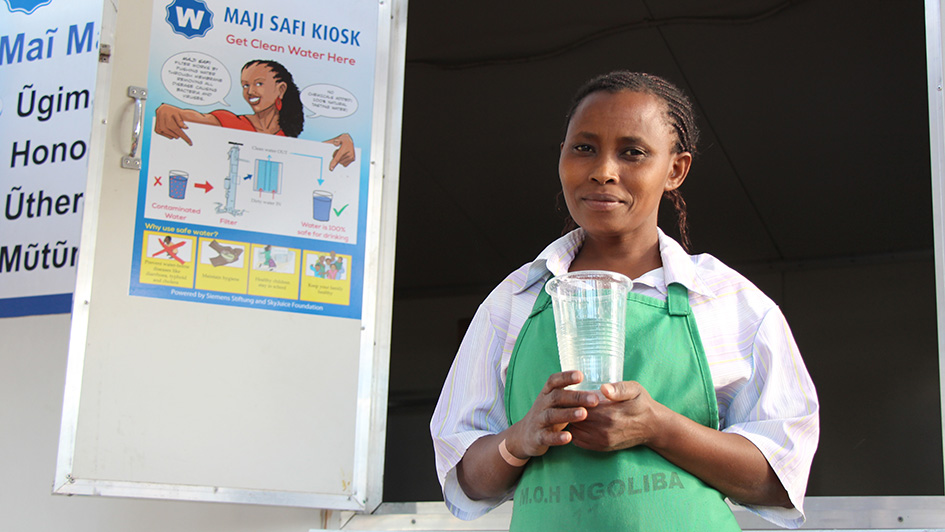
Community-anchored social business model
Since 2022, SWE entered into partnerships either with county governments or water service providers to supply safe water in their locality under the Water Act 2016. The study unpacks how the entrepreneurial and decentralized approach led to a stable, secure, and sustainable supply of safe drinking water. “The entire community is involved at all stages of the project; they are empowered to operate an economically self-sufficing enterprise with annual growth rates in the double-digit percentage range in some cases. The kiosks supply water at affordable prices and still manage to generate sufficient income to cover operating costs, repairs, and maintenance. They create jobs and boost supplementary economic activities like restaurants, salons, and water delivery services”, says Terry Adhiambo, community member, Sondu.
Gender inclusive model
In Kenya, women and girls bear the burden of water management for households. Lack of access to safe water and sanitation deprives girls of their potential, undermines their well-being, and perpetuates cycles of poverty. “Now women and girls don’t need to go out in the dark to fetch drinking water from far-off or crocodile-infested water sources as they have access to safe drinking water at their disposal, resulting in better health conditions and reduced cases of gender-based violence. They have more time to engage in other productive activities like concentrating on their education and participating in the economic opportunities generated by SWE,” says Joyce Onyach, Treasurer, Lower Nyatike Water User Association.
“Safe water is a human right, a stabilizing force, and a catalyst for sustainable development. This was at the heart of launching the Safe Water Enterprise project. We joined forces with local authorities, community organizations, districts, NGOs, and local implementing partners to ensure that no one is left behind.The study showcases that access to clean water has led to the overall productivity and well-being of the community. It is a strong testimony to how an enabling environment and community engagement can pave the way for the Sustainable Development Goal of ensuring safe drinking water and hygiene for all”, explains Dr. Nina Smidt, Managing Director, and Spokesperson of the Board of Directors at Siemens Stiftung.
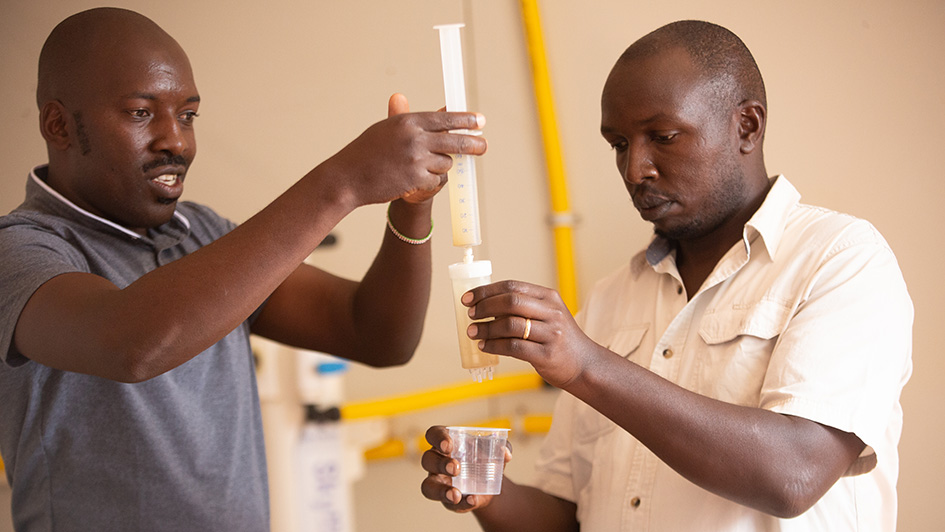
Environmental preservation
The water kiosks require low but reliable technology. SWE uses membrane fiber filter technology, which is cost-efficient, independent of electricity, and suitable for use in rural locations for water supply at the community level. A filter can purify up to 10,000 liters of water per day. Locals have also planted vegetation around the kiosks that can contribute to moderating temperatures and create microclimates, making the surrounding area more hospitable for farming activities and enhancing biodiversity. They are aware of the impact of climate change on water sources and proactively contribute to the conservation of the surrounding environment.
You can download the report here:
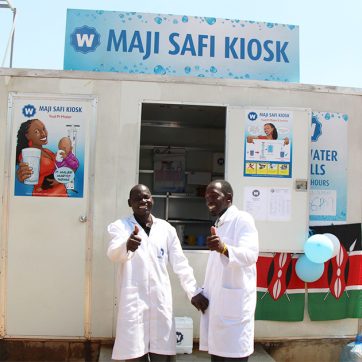
Online Session: “Spotlight On… Safe Water Enterprises in Kenya”
In our virtual session on April 18, 2024, EED Advisory Team will present the core results of the study, followed by the Water Kiosk Owners who will share their first hand experience in a video interview. Siemens Stiftung regional team will give insights about how the results from the study can be applied on the ground.
A Q&A session will take place at the end.
Contact
If you want to learn more about the study and our project in Kenya, get in touch with:
Senior Project Manager, Siemens Stiftung
Christine Meinhardt
Christine.Meinhardt@siemens-stiftung.org
Press contact
Communications / Head of Media Relations
Jagori Dhar
Press material
Learn more
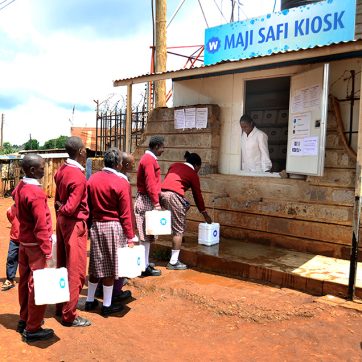
Social entrepreneurial and self-reliant solutions for drinking water and hygiene
With our programs, we are helping to bring about change in the drinking water supply and hygiene conditions in East Africa. Learn more about our expertise and best practices in this area.


